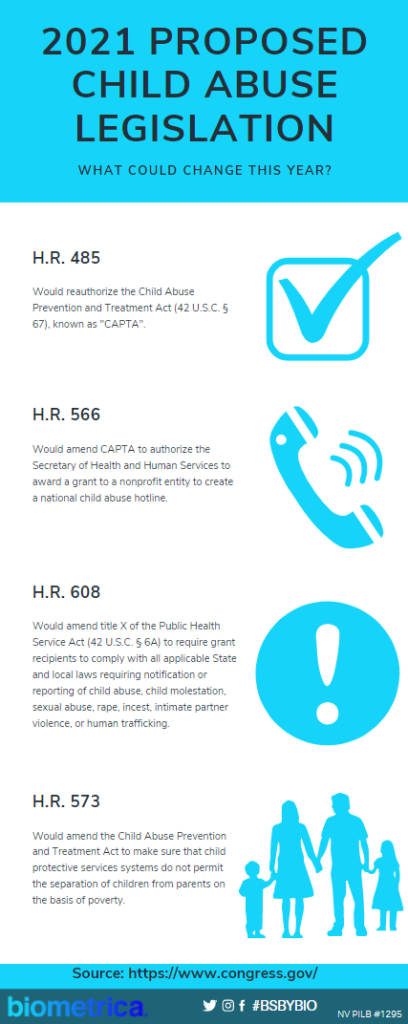More Legal Firepower Proposed In Battle Against Child Abuse
By Charlotte Spencer
The House of Representatives currently has four pieces of legislation before it aimed at better handling child abuse so far in 2021. Of these, one is a reauthorization of the Child Abuse Prevention and Treatment Act, two are proposed amendments to this act, and one is a proposed amendment to the Public Health Services Act. Here is a brief overview of how these proposed laws could change how we address child abuse in the U.S.
H.R. 485
This would reauthorize the Child Abuse Prevention and Treatment Act (42 U.S.C. § 67). This act covers a lot of subtopics within child welfare including, but not limited to, abuse, neglect, adoption, addiction-related issues, child abandonment, and homelessness. It also includes details on research programs, grants, other government programs, and other miscellaneous items.
For more on this act, known for short as CAPTA, click here. For the full text of CAPTA prior to the proposed amendments mentioned below click here.
For full text of the proposed reauthorization when it becomes available, click here.
H.R. 566
If made law, this would amend the Child Abuse Prevention and Treatment Act to authorize the Secretary of Health and Human Services to award a grant to a nonprofit entity to create a national child abuse hotline.
For full text when it becomes available click here.

H.R. 608
If made law, this would amend title X of the Public Health Service Act (42 U.S.C. § 6A) to require grant recipients to comply with all applicable state and local laws requiring notification or reporting of child abuse, child molestation, sexual abuse, rape, incest, intimate partner violence, or human trafficking. Under the current version of this act, grants can be awarded for addressing health services, preventative health, mental health, substance abuse, and related data infrastructure development.
For full text when it becomes available click here.
H.R. 573
If made law, this would amend the Child Abuse Prevention and Treatment Act to make sure that child protective services systems do not permit the separation of children from parents on the basis of poverty. In other words, those in poverty could still lose custody of their children, but not due to their poverty, only for other reasons.
For full text when it becomes available click here.